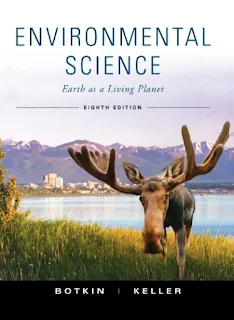 |
| Environmental Science by Botkin Keller |
DESCRIPTION
"Environmental
Science" by Daniel B. Botkin and Edward A. Keller is a widely recognized
and respected textbook in the field of environmental science. The book offers a
comprehensive and interdisciplinary approach to understanding key environmental
concepts and issues. It's often used as a textbook in college-level
environmental science courses.
Here are some key features and
topics typically covered in "Environmental Science" by Botkin and
Keller:
- Interdisciplinary
Approach: The book takes an interdisciplinary approach, drawing on
principles from biology, chemistry, geology, physics, and social sciences to
explore environmental issues.
- Environmental
Issues: It covers a broad range of environmental topics, including
ecology, biodiversity, conservation, pollution, climate change, sustainability,
and human impact on the environment.
- Case
Studies: The textbook often includes real-world case studies and
examples to illustrate key concepts and their relevance to contemporary
environmental challenges.
- Global
Perspective: It addresses global environmental issues and
emphasizes the interconnectedness of ecosystems and environmental problems on a
global scale.
- Sustainability: The
concept of sustainability is a recurring theme throughout the book,
highlighting the importance of finding solutions that balance human needs with
environmental conservation.
- Policy
and Ethics: The authors explore the ethical considerations
and policy implications related to environmental science, helping students
understand the broader societal context.
- Updates
and Revisions: Textbooks are often updated to reflect the
latest research and developments in the field. Be sure to check the edition you
are using for the most current information.
Tags:
Environmental Science
